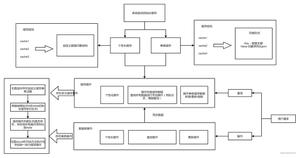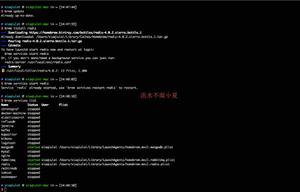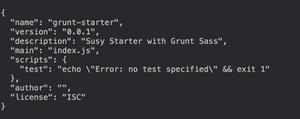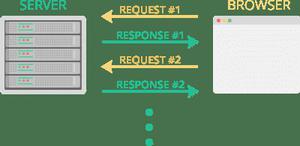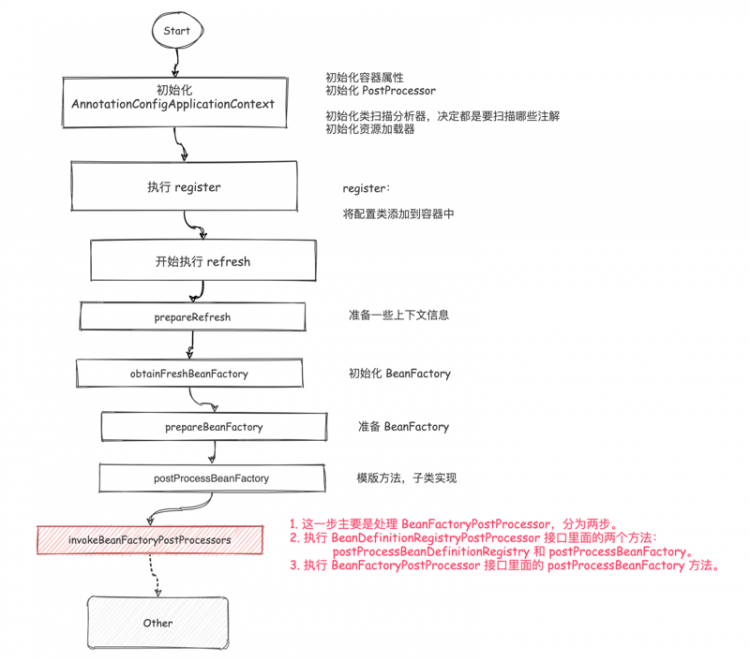从.Net到Java学习第四篇——spring boot+redis
本文内容纲要:从.Net到Java学习第四篇——spring boot+redis
从.Net到Java学习系列目录
“学习java已经十天,有时也怀念当初.net的经典,让这语言将你我相连,怀念你......”接上一篇,本篇使用到的框架redis、FastJSON。
环境准备
安装redis,下图是我本机的redis绿色版,你可以网上自行下载安装,如果不知道如何怎么操作,可以移步到我的另一篇文章:ASP.NET Redis 开发

以管理员身份打开CMD窗口:
C:\Users\zouqj>e:E:\>cd E:\Redis-x64-3.2.100
E:\Redis-x64-3.2.100>redis-server --service-install redis.windows.conf --loglevel verbose --service-name redis --port 6379
运行之后,记得启动redis服务,我这里redis没有设置密码。
启动服务命令:net start redis
关于FastJSON框架的使用呢可以参考文章:高性能JSON框架之FastJson的简单使用
修改pom.xml,添加redis的依赖
<!--redis--> <dependency>
<groupId>org.springframework.boot</groupId>
<artifactId>spring-boot-starter-redis</artifactId>
<version>1.3.8.RELEASE</version>
</dependency>
<!--JSON-->
<dependency>
<groupId>com.alibaba</groupId>
<artifactId>fastjson</artifactId>
<version>1.1.23</version>
</dependency>
修改项目配置文件,添加如下配置节点
redis: database: 0
host: 127.0.0.1
port: 6379
pool:
max-active: 100
max-idle: 10
max-wait: 100000
timeout: 0
最终配置如下:

redis配置项说明:
# REDIS (RedisProperties)# Redis数据库索引(默认为0)
spring.redis.database=0
# Redis服务器地址
spring.redis.host=127.0.0.1
# Redis服务器连接端口
spring.redis.port=6379
# Redis服务器连接密码(默认为空)
spring.redis.password=
# 连接池最大连接数(使用负值表示没有限制)
spring.redis.pool.max-active=8
# 连接池最大阻塞等待时间(使用负值表示没有限制)
spring.redis.pool.max-wait=-1
# 连接池中的最大空闲连接
spring.redis.pool.max-idle=8
# 连接池中的最小空闲连接
spring.redis.pool.min-idle=0
# 连接超时时间(毫秒)
spring.redis.timeout=0
新建一个redis的配置类RedisConfig,因为是配置类,所以要在类上面添加注解@Configuration
@EnableAutoConfiguration注解我们看下它的源码,发现它是一个组合注解
@Target({ElementType.TYPE})@Retention(RetentionPolicy.RUNTIME)
@Documented
@Inherited
@AutoConfigurationPackage
@Import({EnableAutoConfigurationImportSelector.class})
public @interface EnableAutoConfiguration {
String ENABLED_OVERRIDE_PROPERTY = "spring.boot.enableautoconfiguration";
Class<?>[] exclude() default {};
String[] excludeName() default {};
}
@EnableAutoConfiguration注解大致处理流程就是:
1、先去扫描已经被@Component所注释的类,当然会先判断有没有@Condition相关的注解。
2、然后递归的取扫描该类中的@ImportResource,@PropertySource,@ComponentScan,@Bean,@Import。一直处理完。
参考:@EnableAutoConfiguration 配置解释
@Configuration@EnableAutoConfiguration
public class RedisConfig {
@Bean
@ConfigurationProperties(prefix = "spring.redis.pool")
public JedisPoolConfig getRedisConfig() {
JedisPoolConfig config = new JedisPoolConfig();
return config;
}
@Bean
@ConfigurationProperties(prefix = "spring.redis")
public JedisConnectionFactory getConnectionFactory() {
JedisConnectionFactory factory = new JedisConnectionFactory();
factory.setUsePool(true);
JedisPoolConfig config = getRedisConfig();
factory.setPoolConfig(config);
return factory;
}
@Bean
public RedisTemplate<?, ?> getRedisTemplate() {
JedisConnectionFactory factory = getConnectionFactory();
RedisTemplate<?, ?> template = new StringRedisTemplate(factory);
return template;
}
}
添加一个redis的接口服务RedisService
package com.yujie.service;public interface RedisService {
/**
* set存数据 * @param key * @param value * @return
*/
boolean set(String key, String value);
/**
* get获取数据 * @param key * @return
*/
String get(String key);
/**
* 设置有效天数 * @param key * @param expire * @return
*/
boolean expire(String key, long expire);
/**
* 移除数据 * @param key * @return
*/
boolean remove(String key);
}
添加redis实现类RedisServiceImpl,注意下面代码中标红了的代码,这里设置redis的key和value以字符串的方式进行存储,如果不配置的话,默认是以16进制的形式进行存储,到时候我们读取的时候,就会看着很乱。
@Service("redisService")public class RedisServiceImpl implements RedisService {
@Resource
private RedisTemplate<String, ?> redisTemplate;
@Override
public boolean set(final String key, final String value) {
boolean result = redisTemplate.execute(new RedisCallback<Boolean>() {
@Override
public Boolean doInRedis(RedisConnection connection) throws DataAccessException {
RedisSerializer<String> serializer = redisTemplate.getStringSerializer();
connection.set(serializer.serialize(key), serializer.serialize(value));
return true;
}
});
return result;
}
@Override
public String get(final String key) {
String result = redisTemplate.execute(new RedisCallback<String>() {
@Override
public String doInRedis(RedisConnection connection) throws DataAccessException {
RedisSerializer<String> serializer = redisTemplate.getStringSerializer();
byte[] value = connection.get(serializer.serialize(key));
return serializer.deserialize(value);
}
});
return result;
}
@Override
public boolean expire(final String key, long expire) {
return redisTemplate.expire(key, expire, TimeUnit.SECONDS);
}
@Override
public boolean remove(final String key) {
boolean result = redisTemplate.execute(new RedisCallback<Boolean>() {
@Override
public Boolean doInRedis(RedisConnection connection) throws DataAccessException {
RedisSerializer<String> serializer = redisTemplate.getStringSerializer();
connection.del(key.getBytes());
return true;
}
});
return result;
}
}
由于项目中引入了spring-boot-starter-test的依赖,也就是集成了spring boot的单元测试框架。给redis实现类,添加单元测试,将光标移动到RedisService接口位置处,然后按Alt+Enter,如下图所示:

全选所有方法

在model包中,添加一个实体类Person
public class Person { private String name;
private String sex;
public Person() {
}
public Person(String name, String sex) {
this.name = name;
this.sex = sex;
}
public String getName() {
return name;
}
public void setName(String name) {
this.name = name;
}
public String getSex() {
return sex;
}
public void setSex(String sex) {
this.sex = sex;
}
}
接下来,我们再修改一下单元测试


@RunWith(SpringRunner.class)@SpringBootTest
public class RedisServiceImplTest {
private JSONObject json = new JSONObject();
@Autowired
private RedisService redisService;
@Test
public void contextLoads() throws Exception {
}
/**
* 插入字符串
*/
@Test
public void setString() {
redisService.set("redis_string_test", "springboot redis test");
}
/**
* 获取字符串
*/
@Test
public void getString() {
String result = redisService.get("redis_string_test");
System.out.println(result);
}
/**
* 插入对象
*/
@Test
public void setObject() {
Person person = new Person("person", "male");
redisService.set("redis_obj_test", json.toJSONString(person));
}
/**
* 获取对象
*/
@Test
public void getObject() {
String result = redisService.get("redis_obj_test");
Person person = json.parseObject(result, Person.class);
System.out.println(json.toJSONString(person));
}
/**
* 插入对象List
*/
@Test
public void setList() {
Person person1 = new Person("person1", "male");
Person person2 = new Person("person2", "female");
Person person3 = new Person("person3", "male");
List<Person> list = new ArrayList<>();
list.add(person1);
list.add(person2);
list.add(person3);
redisService.set("redis_list_test", json.toJSONString(list));
}
/**
* 获取list
*/
@Test
public void getList() {
String result = redisService.get("redis_list_test");
List<String> list = json.parseArray(result, String.class);
System.out.println(list);
}
@Test
public void remove() {
redisService.remove("redis_test");
}
}
View Code
我们发现,在单元测试类上面自动添加了2个注解,@SpringBootTest和@RunWith(SpringRunner.class)
@SpringBootTest注解是SpringBoot自1.4.0版本开始引入的一个用于测试的注解。
@RunWith就是一个运行器
@RunWith(SpringRunner.class)就是指用SpringRunner来运行
运行单元测试:

查看redis中的结果,这里用到一个可视化的redis管理工具:RedisDesktopManager

本文内容总结:从.Net到Java学习第四篇——spring boot+redis
原文链接:https://www.cnblogs.com/jiekzou/p/9205117.html
以上是 从.Net到Java学习第四篇——spring boot+redis 的全部内容, 来源链接: utcz.com/z/296321.html


